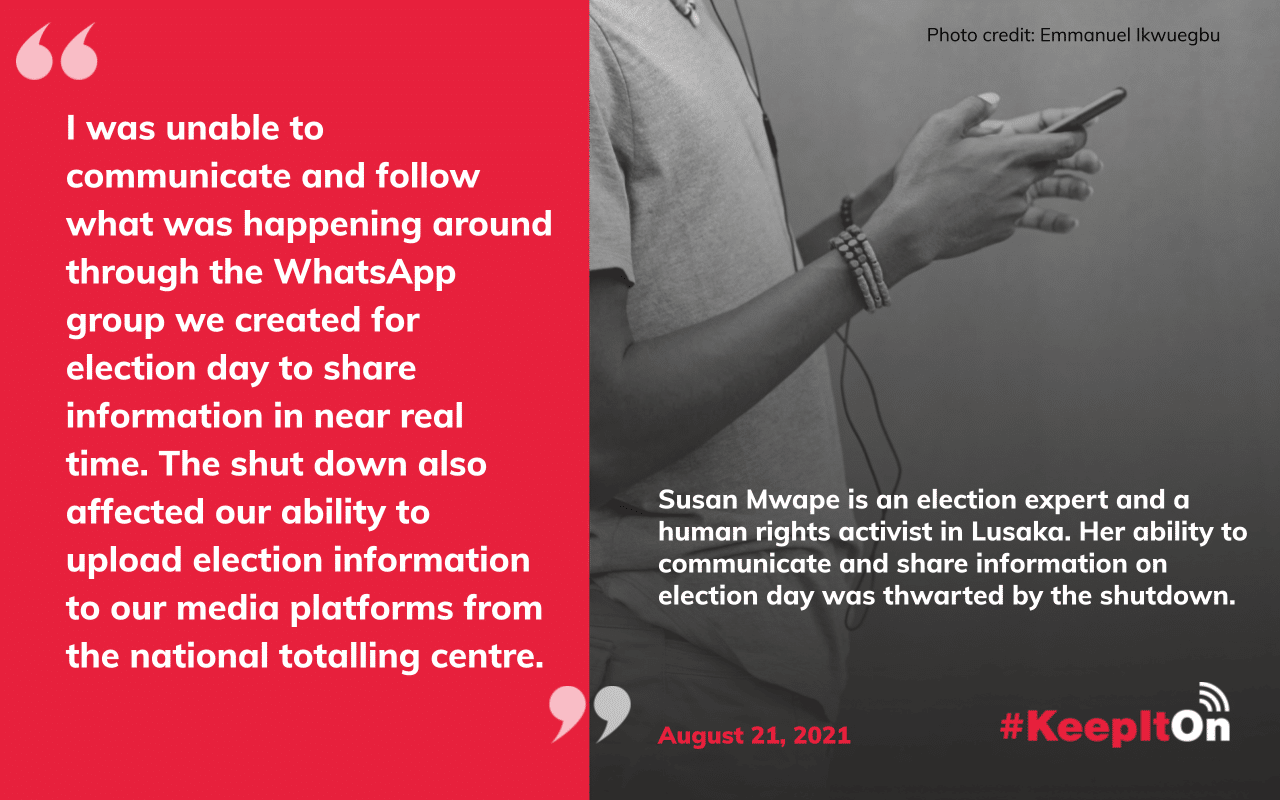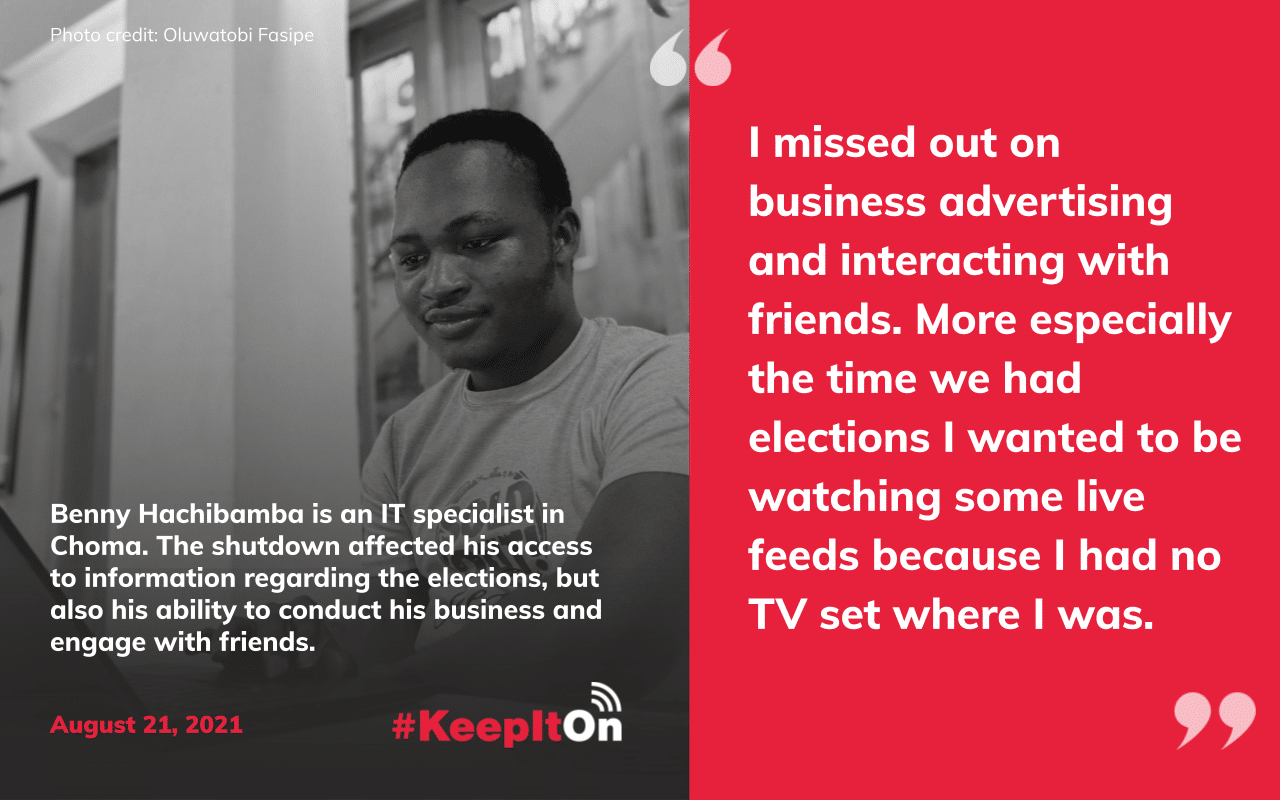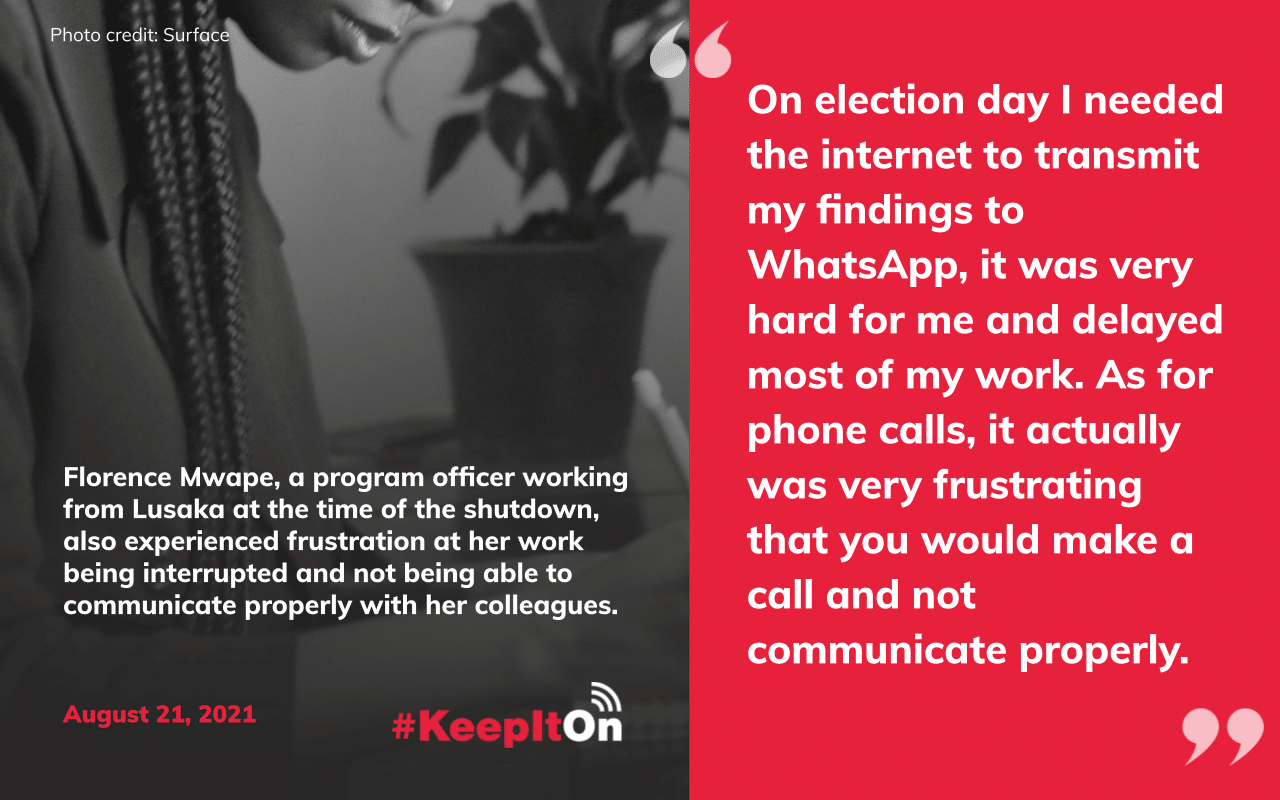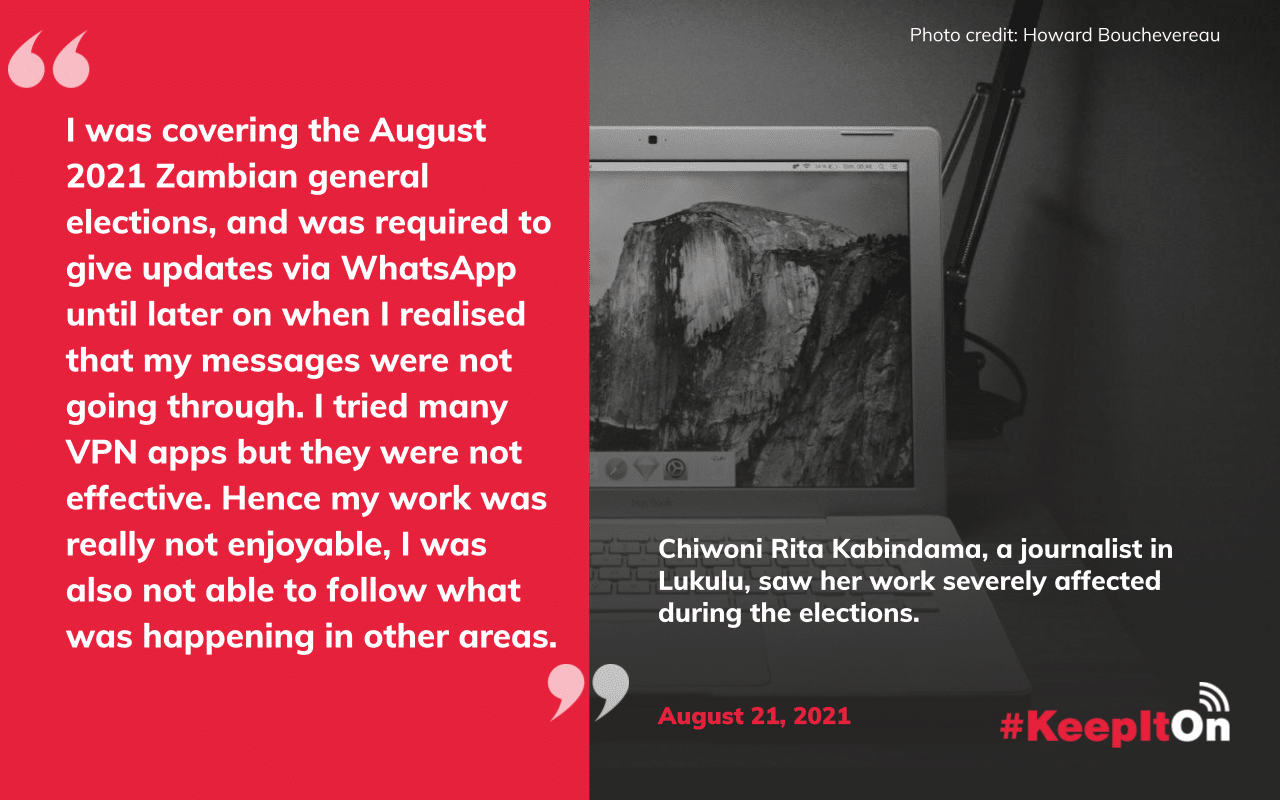Just like many governments in Africa, authorities in Zambia intentionally blocked access to social media platforms — including WhatsApp, Twitter, Instagram, and Facebook — during the country’s presidential election on August 12. The shutdown severely undermined people’s ability to communicate and receive information through the course of the election, while also impacting their lives, work, education, and relationships.
Zambia’s election had already been tainted by political violence, with the government deploying the military to control the population and an onslaught of assassinations and arrests in the weeks leading up to the elections.
According to data from the Open Observatory of Network Interference (OONI), the blocking of WhatsApp was confirmed through technical measurements on August 12. A Facebook spokesperson also reported that the shutdown had affected not only Facebook’s apps, but also others like Twitter. Zambians reported that they were using VPNs to gain access to the social media apps that were inaccessible. OONI’s data suggests that there was coordination among different ISPs in the implementation of social media blocks, and that they used the same censorship techniques.
Below, we share five stories to show how the shutdown in Zambia affected people’s lives, as well as ways you can join the fight against internet shutdowns around the world.


![Juliet Kaira Chibuta is a journalist and development expert in Lusaka. Her work monitoring the election was interrupted, leaving her frustrated and unable to accomplish her work for the day: “I was monitoring elections and needed to do a lot of communication using WhatsApp with fellow monitors, as well as follow election proceedings via Twitter and Facebook. Suddenly around midday, [the] internet shut down and I was unable to work. It was a very frustrating experience.” Timestamp: August 21, 2021](https://www.accessnow.org/wp-content/uploads/2023/01/KeepItOn-Story-Cards-2021-2-1.png)


How you can help fight shutdowns in Zambia and elsewhere
So far in 2021, the governments of Uganda, Myanmar, India, Cuba, and many others have also disrupted access to the internet and digital communications tools. Network disruptions interfere with people’s rights to free speech, access to information, and participation in the democratic process — and you can do something to stop it.
Help us amplify the #KeepItOn coalition’s call to governments to stop using internet shutdowns to violate the rights of people globally by taking the following steps:
- Share this blog post on social media using the hashtag #KeepItOn and #InternetShutdown to raise awareness about the devastating impact of internet shutdowns on people’s lives.
- Share our Shutdown Stories form with your network in Zambia, or any other place affected by a shutdown, to help us gather more testimonies for our advocacy work, which can help serve as evidence of harm in court and international forums.
- For election observers, journalists, and others preparing to monitor an upcoming election — particularly in a country with a high risk of network disruptions — follow our guide for staying connected and fighting back against election-related internet shutdowns.
Learn more
#KeepItOn is a global campaign that unites more than 240 organizations around the world fighting to end internet shutdowns through grassroots advocacy, direct policymaker engagement, technical support, and legal intervention.
